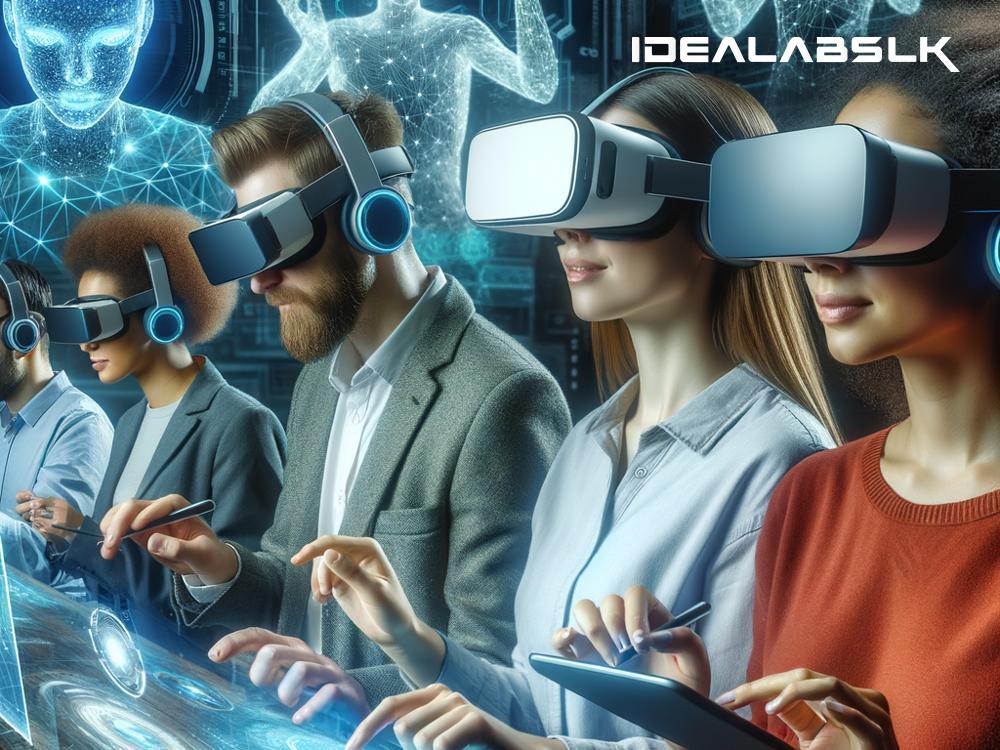How AI Will Make Virtual Reality More Accessible: Smarter Interactions and User Interfaces in 2025
Imagine stepping into a world where anything is possible, from exploring the deepest oceans to climbing Mount Everest, all from the comfort of your own home. Virtual Reality (VR) has promised us this infinite possibility for years. Yet, the dream has often been just out of reach for many, too expensive, too complicated, or simply too clunky. Fast forward to 2025, and the game has changed, thanks to Artificial Intelligence (AI).
AI is not just a buzzword; it's a powerful technology that's transforming how we interact with digital worlds, making VR more accessible to everyone. Let’s dive into how AI is turning the tide, breaking down barriers, and paving the way for a future where everyone can experience the magic of VR.
Simplifying Setup and Use
For many, the journey into VR begins with a complicated setup process. However, by 2025, AI has streamlined these initial steps. Imagine a VR system that automatically adjusts to your room's size, recognizes where obstacles are, and calibrates itself accordingly. AI algorithms have made this a reality, ensuring that you spend less time setting up and more time exploring virtual worlds.
Intuitive Interactions
One of the biggest advancements AI has brought to VR is creating smarter, more intuitive ways for us to interact with virtual environments. Previous VR systems often relied on clunky controllers that felt unnatural. Now, thanks to AI, we're seeing the rise of gesture and voice controls that feel as natural as talking or moving in the real world.
Imagine pointing at an object in VR and grabbing it just by pinching your fingers together, or navigating through a menu with simple voice commands. AI understands your intentions and translates them into actions in the virtual world, making the experience seamless and magical.
Personalized Experiences
AI is not just making VR more accessible through hardware and interactions; it's also revolutionizing the content itself. In 2025, VR experiences are tailored to individual preferences and needs. Whether you're using VR for gaming, education, or virtual tourism, AI algorithms analyze your behaviors and preferences to recommend content that matches your interests.
This personalization extends to learning and accessibility features. For those with disabilities, AI-driven VR adapts to offer tailored experiences, making sure VR is enjoyable and accessible for everyone. This could include adjusting the contrast or size of text for those with vision impairments or providing sign language avatars for deaf users.
Affordability and Reach
Perhaps one of the most significant impacts of AI on VR is making it more affordable and, thus, more accessible. By optimizing software and reducing the need for high-end hardware, VR systems in 2025 are more affordable than ever before. This democratization of technology means that more people worldwide can explore virtual worlds, regardless of their economic background.
Education and Training
In the realm of education and training, AI-powered VR is a game-changer. Imagine medical students practicing surgeries in a risk-free virtual environment or mechanics getting hands-on experience with virtual engines. AI makes these simulations more realistic and responsive, offering feedback that was previously impossible.
The Future of Social Interaction
Lastly, as VR becomes more accessible, it opens up new avenues for social interaction. Virtual meetups and social spaces are more sophisticated, thanks to AI, allowing for more realistic avatars that mimic your expressions and body language. This means that in 2025, hanging out with friends in VR is just as fun and fulfilling as meeting in person, breaking down geographical barriers and bringing people together.
In Conclusion
As we look toward 2025, the fusion of AI and VR is breaking down the walls that once made virtual reality inaccessible to many. This technology is not only making VR setups simpler and interactions more intuitive but also ensuring that virtual worlds are personalized, affordable, and packed with endless possibilities. The future of VR is bright, and it's one where anyone can strap on a headset and step into a world where their imagination is the only limit. The magic of VR, enhanced by AI, is ready to welcome everyone into its boundless realms.

